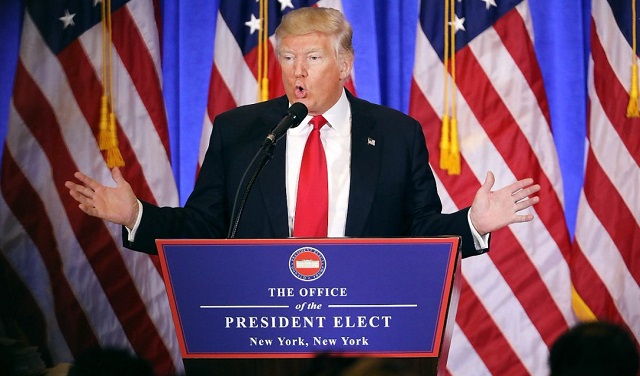
COMMENT: By Ian Buruma
His election is more like an earthquake, unleashing forces no one can control
Is there any reason for liberals to feel optimistic after a year of political disasters? Is there even a shred of silver lining to be found in the tatters of , Donald Trump’s election, and European disunity? Christians believe that despair is a mortal sin, so one might as well try to find a glimmer of hope.
In the United States, many liberals console themselves with the belief that the obvious dangers of being governed by an ignorant, narcissistic, authoritarian loudmouth backed by billionaires, ex-generals, peddlers of malicious fake news, and neophytes with extreme views will help to galvanize a strong political opposition. Trump, it is hoped, will concentrate the minds of all who still believe in liberal democracy, be they left or even right of center.
In this scenario, civil-rights groups, NGOs, students, human-rights activists, Democratic members of Congress, and even some Republicans, will do everything in their power to push back against Trump’s worst impulses. Long-dormant political activism will erupt into mass protest, with resurgent liberal idealism breaking the wave of right-wing populism. Well, perhaps.
Others seek comfort in the expectation that Trump’s wildly contradictory plans – lower taxes, while raising infrastructure spending; helping the neglected working class, while slashing welfare and repealing the Affordable Care Act – will suck his administration into a swamp of infighting, incoherence, and incompetence.
All these things might happen. But protest alone won’t be of much help. Anti-Trump demonstrations in big cities will no doubt annoy the self-loving new president, and the moral glow of joining the resistance will warm the protesters. But without real political organisation, mere protest will go the way of Occupy Wall Street in 2011; it will peter out into ineffectual gestures.
One of the most dangerous ideas of contemporary populism is that political parties are obsolete, and should be replaced by movements led by charismatic leaders who act as the voice of “the people.” By implication, all dissenters are enemies of the people. That way lies dictatorship.
Liberal democracy can be saved only if mainstream parties can regain voters’ trust. The Democratic Party must get its act together. “Feeling the Bern” (the mantra of Bernie Sanders’ leftist campaign) will not suffice to stop Trump from inflicting great harm to institutions that were carefully constructed more than two centuries ago to protect American democracy from demagogues like him.
The same thing is true of international arrangements and institutions, whose survival depends on the willingness to defend them. Trump has expressed his indifference to NATO, and US security commitments in East Asia. His election will further erode Pax Americana, already battered by a succession of foolish wars. Without the US guarantee to protect its democratic allies, institutions built after World War II to provide that protection would not survive for very long.
Perhaps there is a tiny ray of hope in this gloomy prospect. Europe and Japan, not to mention South Korea, have become too dependent on US military protection. The Japanese have fairly large armed forces, but are hampered by a pacifist constitution written by Americans in 1946. Europeans are completely unprepared to defend themselves, owing to inertia, complacency, and lassitude.
 The Independent Uganda: You get the Truth we Pay the Price
The Independent Uganda: You get the Truth we Pay the Price





